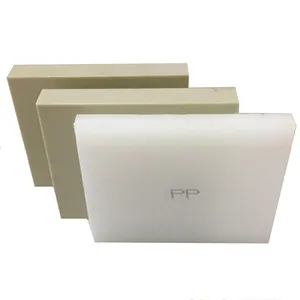Popular in your industry












































































Top categories
About hdpe price
What is Hdpe Pricing Guide
HDPE, or high-density polyethylene, is a type of plastic known for its exceptional properties and versatility. It is a material commonly used in a wide range of applications, from plastic bags and bottles to toys and food containers. HDPE is known for its high strength-to-density ratio, which makes it a favorite choice in the manufacturing industry. Businesses across various sectors utilize this plastic due to its durability, resistance to chemicals, and ease of processing.
The production of HDPE starts with the polymerization of ethylene, which is then subjected to high pressure to form the high-density polyethylene resin. This resin is melted and extruded through a die to create granules, which can then be molded into various shapes and sizes. The resulting product is lightweight, with a smooth, non-porous surface. HDPE's properties such as being lightweight, impact-resistant, and having a relatively inert nature make it suitable for a multitude of uses across different industries.
HDPE pricing is influenced by factors such as the cost of raw materials, production technology, market demand, and the effectiveness of recycling programs. With businesses increasingly focusing on sustainability and environmental responsibility, the demand for recycled HDPE is growing, which can affect pricing and availability. By understanding the principles of how HDPE is manufactured and what drives its pricing, businesses can make informed decisions when purchasing this material for their specific applications.
HDPE Pricing Guide
The pricing of HDPE can vary widely depending on several factors such as market demand, production costs, and the application requirements. Here we provide an overview of common types of HDPE and their typical uses in various sectors:
-
Virgin HDPE: This type represents freshly manufactured HDPE with high purity. It is often used in applications where the material's inherent properties are crucial, such as in food packaging or outdoor products.
-
Recycled HDPE Granules: Made from post-consumer or industrial recycled HDPE, this eco-friendly option is cost-effective and popular in the construction industry for items like drainage pipes and outdoor furniture.
-
HDPE Resin: Used for creating HDPE raw materials, resin is typically sold to manufacturers who mold it into various products like bottles or containers.
-
HDPE Pipes: These are one of the most common applications for HDPE, especially for water and gas conduits due to the material's excellent strength and resistance to high pressures.
-
HDPE Packaging: From milk jugs to shampoo bottles, HDPE's versatility makes it a go-to for manufacturers in the packaging industry.
How to choose Hdpe Pricing Guide
Selecting the right HDPE pricing guide requires an understanding of the specific project requirements and the nuances of the material's composition. When considering a purchase on Alibaba.com for B2B sales, buyers should reflect on the following:
-
Material Grade: The grade of HDPE will impact its strength, resistance to environmental stressors, and suitability for specific applications. Virgin HDPE may be preferred for its superior characteristics when used outdoors or for products requiring high tensile strength.
-
Form and Function: The form (granular, powder, or resin) should align with the manufacturing process needs. Granules are versatile and can be melted for molding purposes while powders offer convenience in transportation and can be incorporated into coatings or adhesives.
-
Application-Specific Properties: Depending on the intended use—such as packing, outdoor products, or aquaculture—the required properties may vary. For instance, UV resistance might be crucial for products exposed to sunlight while high-density polyethylene (HDPE) would be ideal for water pipes due to its strength and corrosion resistance.
-
Environmental Considerations: For businesses committed to sustainability, choosing recycled HDPE can be an attractive option. It not only reduces environmental impact but also offers cost savings without compromising performance.
Businesses should also consider after-sale services offered by suppliers on Alibaba.com such as spare parts support or onsite training which can be invaluable for complex projects involving HDPE materials.
About Hdpe Pricing Guide on Alibaba.com
Alibaba.com stands out as a global marketplace connecting businesses with a vast selection of HDPE products suitable for an array of industrial applications. With over two decades of experience since its inception in 1999, Alibaba.com has become an invaluable resource for businesses seeking specialized items like HDPE materials. The platform boasts an extensive network of suppliers offering a multitude of options in terms of color, design style, application usage, and after-sale services like onsite training or return and replacement policies.
For businesses prioritizing quality and reliability in their procurement process, Alibaba.com offers Trade Assurance—a service that safeguards payments until delivery completion. This commitment to secure transactions underscores Alibaba.com's dedication to fostering trust within its trading community. Moreover, with features enabling communication in local languages and mobile-friendly buying options, the platform facilitates a smooth purchasing experience tailored to diverse business needs around the world.
By choosing Alibaba.com as your source for wholesale HDPE materials, your business gains access not only to a wide range of products but also a streamlined procurement process supported by comprehensive project solution capabilities. This ensures you can find the right material efficiently while benefiting from competitive market pricing without compromising on quality or service excellence.
Common FAQs for Hdpe Pricing Guide
What is HDPE?
HDPE (High-Density Polyethylene) is a durable, versatile material known for its strength and chemical resistance, making it suitable for a wide range of applications including packaging, water supply, and construction.
How is the price of HDPE determined?
The price of HDPE is influenced by several factors including the grade and quality of the material, its intended application, the quantity purchased, and regional market conditions.
Can HDPE be recycled?
Yes, HDPE is recyclable. It is essential to separate it from other waste streams and use appropriate recycling facilities to ensure a high-quality recycled product.
Is HDPE affected by temperature?
HDPE has excellent resistance to low temperatures and is suitable for a wide range of temperatures. It remains tough and rigid at sub-zero temperatures and does not become brittle.
What types of HDPE are available?
There are several types of HDPE available such as Virgin HDPE, Recycled HDPE, High-Density Polyethylene (HDPE), and Linear Low-Density Polyethylene (LLDPE), each with unique properties suitable for different applications.
What are the advantages of using HDPE over other plastics?
HDPE is valued for its high strength-to-weight ratio, excellent resistance to impact and chemicals, and its ability to provide a reliable material for structural applications.
Can HDPE be used for food-related containers?
Yes, HDPE is approved for food-related containers as it does not contain harmful chemicals that could leach into food. It is commonly used in food packaging.
How does the grade of HDPE affect its use?
The grade of HDPE indicates its quality and suitability for specific applications. Higher-grade HDPE offers better performance characteristics such as improved tensile strength or increased durability.
Are there eco-friendly options available within the HDPE category?
Yes, recycled HDPE is an eco-friendly option that provides the same benefits as new HDPE. It is made from post-consumer waste and can help reduce the environmental impact of your product or packaging.
What should be considered when choosing the color of HDPE?
When choosing a color for HDPE, consider the aesthetic appeal for end consumers or brand recognition if applicable. It is also important to take into account any specific color requirements for your application.
How do I determine the right type of HDPE for my project?
Determine the application's specific requirements such as mechanical strength, chemical resistance, or UV exposure and select an appropriate type of HDPE that aligns with those needs.
Can I order custom-sized HDPE products through Alibaba.com?
While Alibaba.com connects buyers with suppliers who may offer custom-sized HDPE products based on their processing capabilities, it is important to communicate directly with suppliers to discuss custom requirements.
















